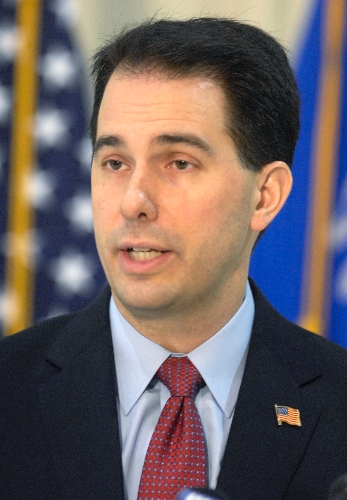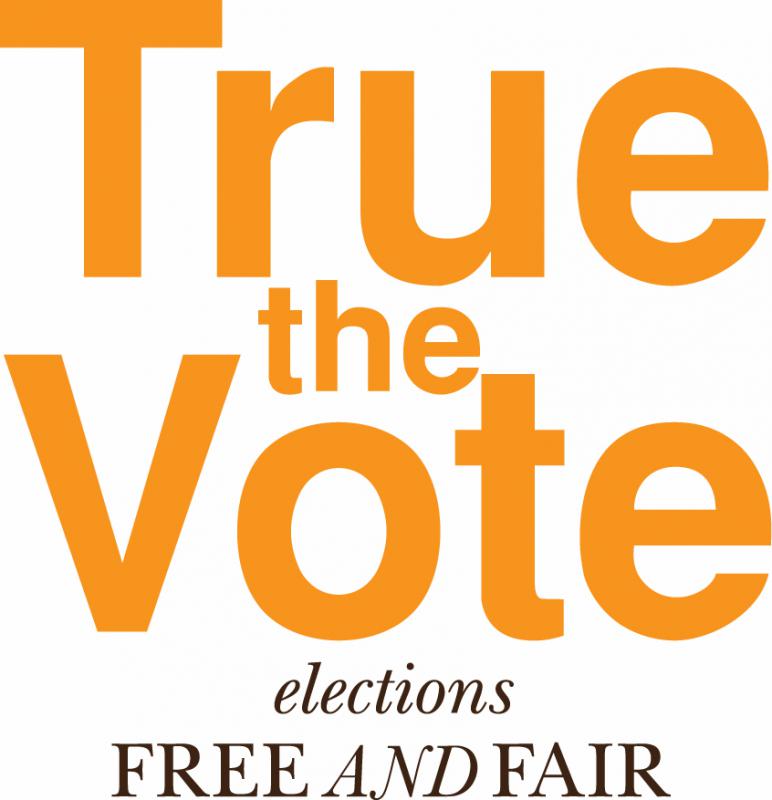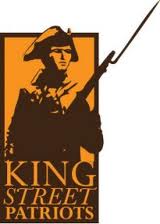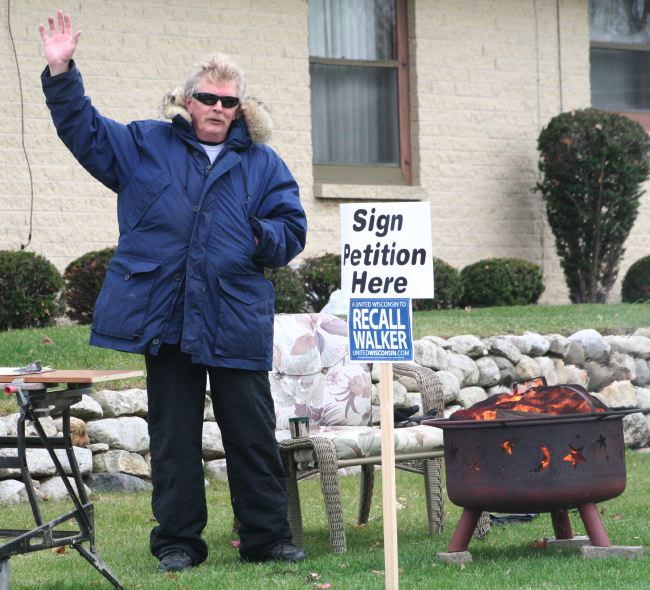Submitted by Brendan Fischer on
After news outlets reported Monday that Governor Scott Walker would not be challenging recall signatures, the governor quietly submitted a request asking that the state elections board accept challenges from an effort involving a Texas organization with a history of voter suppression.
 On Monday morning, Walker campaign spokeswoman Ciara Matthews announced "we are not filing any specific challenges to any specific signatures today," which led to a flurry of articles repeating the claim. Monday was the deadline for Walker to file challenges to the recall petitions.* "That put us in an impossible timeline," she said.
On Monday morning, Walker campaign spokeswoman Ciara Matthews announced "we are not filing any specific challenges to any specific signatures today," which led to a flurry of articles repeating the claim. Monday was the deadline for Walker to file challenges to the recall petitions.* "That put us in an impossible timeline," she said.
Walker's filing with the Wisconsin Government Accountability Board says his campaign has only been able to evaluate around 350,000 signatures, far short of the 540,000 minimum necessary for a recall.
However, Walker also asked the Board to take into account the findings of the "Verify the Recall" initiative, a joint project between the Houston-based nonprofit "True the Vote" and the Wisconsin Tea Party groups Grandsons of Liberty and We The People of the Republic. However, it now appears that Walker and others are working to distance themselves from "True the Vote" and its parent group, the King Street Patriots.
Out-of-State Groups Review Signatures
Since early February, the groups involved in the "Verify the Recall" effort have been recruiting volunteers from around the country to enter the Wisconsin recall petitions into a massive online database.
The database was reportedly developed by "True the Vote," a project of the Texas Tea Party group King Street Patriots, which has been accused of a variety of voter suppression tactics, and is working with a national right-wing organization to purge voter rolls in several states.
Last month, the Texas-based King Street Patriots / "True the Vote" and the two Wisconsin Tea Party groups behind the Verify the Recall initiative asked the Wisconsin Government Accountability Board for the chance to officially challenge signatures. Their request was turned down, but they nonetheless continued to analyze the recall petitions and released their findings Monday. Walker's campaign is also asking the Board to incorporate Verify the Recall's analysis of the recall petitions. The groups say that if the Board does not consider their analysis they may bring a lawsuit.
Walker Seeks Distance From Texas Group?
Since January, the "Verify the Recall" effort had been described as "a joint endeavor" between "True the Vote" and the Wisconsin Tea Party groups (see also here and here).
However, in his filing with the Government Accountability Board, Walker only refers to the two Wisconsin Tea Party groups when describing the Verify the Recall effort -- the Houston-based "True the Vote" is not mentioned.
Likewise, the Verify the Recall website now says the effort was co-organized by only the Wisconsin Tea Party groups, and "True the Vote" is nothing more than a "contracted partner." As of publication time, "True the Vote's" website still refers to Verify the Recall as a collaboration between itself and the Wisconsin groups.
 Why might Walker want to downplay the involvement of the Texas-based True the Vote?
Why might Walker want to downplay the involvement of the Texas-based True the Vote?
One issue is that Walker has long claimed the recall effort against him was led by "out-of-state special interests" (despite the governor relying on out-of-state donors for most of his fundraising). Relying on out-of-state groups and individuals to do the legwork for his campaign may not play well, especially when upwards of 20,000 in-state-residents braved the cold and snow to gather recall signatures in the first place.
Another issue is that "True the Vote" is a 501(c)(3) "charitable" organization prohibited from intervening in political campaigns, and getting officially involved in the Walker campaign might threaten the group's (c)(3) status. In recent months, a number of other 501(c)(3) groups have gotten involved in defending Walker against recall, including the Koch-funded Americans for Prosperity Foundation and the Illinois-based Heartland Institute. Last week, the Democratic Party of Wisconsin filed a complaint alleging the Americans for Prosperity Foundation violated its charitable status by running ads supporting Walker's reelection. "True the Vote" and its parent group, the King Street Patriots, have previously been accused of violating their nonprofit status and state election laws (and for their defense attorney they hired James Bopp Jr., the anti-campaign finance crusader behind the infamous Citizens United case).
Finally, Walker might want to distance himself from "True the Vote" and King Street Patriots based on their alleged history of voter suppression.
King Street Patriots Accused of Voter Suppression
 The King Street Patriots are not only fanatic about "voter fraud" in Wisconsin, but around the country. And they have been involved in a variety of efforts that border on voter suppression.
The King Street Patriots are not only fanatic about "voter fraud" in Wisconsin, but around the country. And they have been involved in a variety of efforts that border on voter suppression.
In the 2010 election, the King Street Patriots' "True the Vote" program reportedly recruited thousands of volunteers to patrol Harris County, Texas polling places for "fraud and other problems at the polls." While the volunteers were unable to find any hard evidence of intentional voter fraud, they did draw accusations of voter intimidation from election officials, with volunteers "hovering" behind people as they cast their ballot, "getting into election worker's faces," and blocking or disrupting lines of voters. The incidents, which were described as "systematic and organized," occurred in minority districts and were directed at African-Americans and Latinos.
After those elections, the Civil Rights division of the U.S. Department of Justice launched an investigation into the group and its voter intimidation efforts.
Despite this, the King Street Patriots are seeking to expand the same initiatives that led to accusations of voter suppression. The group held a national summit last year featuring Andrew Breitbart to highlight their efforts to prevent "voter fraud," and pledged to recruit 1 million Tea Party poll watchers for the 2012 presidential elections.
The group also elevates individuals who advocate for other limits to the franchise. In November, the King Street Patriots hosted a $100 per plate fundraiser featuring right-wing columnist Michael Vadum. Earlier that year Vadum authored an article titled "Registering the Poor to Vote is Un-American:"
"Registering [the poor] to vote is like handing out burglary tools to criminals," he wrote. "It is profoundly anti-social and un-American to empower the nonproductive segments of the population to destroy the country."
Vadum also wrote Subversion Inc.: How Obama's ACORN Red Shirts are Still Terrorizing and Ripping Off American Taxpayers. The Association of Community Organizations for Reform Now, or ACORN, registered low-income voters, among other projects, and closed its doors in 2010. The invite to the event from King Street Patriots says ACORN was a "criminal organization with the goal of the destruction of America and the installation of a totalitarian government." The invitation also includes a blurb from Vadum's book:
"America is under siege by radicals who are determined to pulverize the U.S. Constitution, deliberately bankrupt the nation, destroy the electoral system, and drive the economy into the ground. Subversion Inc. isn't just the story of ACORN. It's the story of how community organizers just like President (Barack) Obama are undermining America from within."
The King Street Patriots claim their "True the Vote" initiative is "nonpartisan" and "not a political thing."
In recent weeks, the King Street Patriots announced their "True the Vote" initiative would be working with Judicial Watch, a conservative legal activist and litigation group, to cleanse the voter registration rolls of individuals they deem ineligible to vote. The groups plan to "pressure states and localities" through lawsuits, if necessary, to "clean up" voter rolls.
Walker Asks for Help in Recall Challenge
 In Wisconsin, recall proponents gathered one million signatures to recall Governor Walker in just 60 days, and turned them in on January 17, 2012. The number was almost double the amount required, making the recall effort the largest in United States history. More than 40 percent of the signatures would need to be invalidated to prevent a recall election. An analysis by the Milwaukee Journal-Sentinel found that only 15 percent of signatures could not be verified based on other data sources, such as the phone book or voter rolls (which does not necessarily mean the signatures were not legitimate).
In Wisconsin, recall proponents gathered one million signatures to recall Governor Walker in just 60 days, and turned them in on January 17, 2012. The number was almost double the amount required, making the recall effort the largest in United States history. More than 40 percent of the signatures would need to be invalidated to prevent a recall election. An analysis by the Milwaukee Journal-Sentinel found that only 15 percent of signatures could not be verified based on other data sources, such as the phone book or voter rolls (which does not necessarily mean the signatures were not legitimate).
State law allows the subject of a recall election 10 days to review the signatures and submit challenges. Walker was granted a 20-day extension, then requested a further 14-day extension that was denied.
"For [Walker] to suggest that he had a harder time, with warm bodies sitting at desks doing the reviewing, than Wisconsinites standing out in the snow for 60 days, is just ridiculous," said Mike Tate, spokesperson for the Democratic Party of Wisconsin, on a conference call Monday morning. "He had 3 times as much time as is normally allowed under current law" to review the signatures.
Unable to complete a review on its own, Walker's campaign asked the elections board to incorporate Verify the Recall's analysis of the recall petitions. It appears that state law prohibited the group from directly sharing its findings with Walker's campaign. Today, Government Accountability Board spokesman Reid Magney says they will not consider the Verify the Recall findings. "There is no legal basis for us to accept third party challenges."
The groups involved in Verify the Recall say they are considering a lawsuit against the Board.
After GAB Review, Elections as Early as May
Walker also requested that the Government Accountability Board conduct its own review of the petitions, in accordance with a Waukesha County court decision that is in legal limbo. Current rules place the burden for challenging signatures on the elected officials targeted for recall, but in January a Republican Waukesha judge told the Board to make a greater effort to screen out duplicate or fake petition signatures. However, that judge refused to allow recall organizers intervene in the case, leading an appeals court to vacate the decision and order a re-hearing. That case has not gone through the second round.
The elections board has said they will try to weed-out duplicate, incomplete, or fraudulent signatures. The agency has until March 19 to conduct its review but may request an extension.
If the Board verifies all signatures on March 19, the election would be set for May 1, six weeks later. If Democrats have not settled on a candidate the primary election would take place on that date, and the general election would be 4 weeks later, on May 29.
If the Walker campaign files any legal challenges -- such as a suit arguing the elections board should accept the Verify the Recall findings -- the recall election could be further delayed.
William Dooling contributed to this article.
This article was updated at 7:46pm.
* Update 10pm: The article erroneously stated that challenges to recall petitions for Walker and all other Republicans facing recall were due on Monday. Challenges for the four Senators were due last week, and for Lieutenant Governor Kleefisch next week. CMD regrets the error.
| Attachment | Size |
|---|---|
| 252.09 KB | |
| 140.61 KB | |
| 276.05 KB | |
| 202.21 KB | |
| 130.61 KB |

Comments
BWilhm replied on Permalink
Brendan, Great Op-ed for
Mike LaPLace replied on Permalink
TTV
Sharonhollie replied on Permalink
Verify the petition, Walker and TTV.